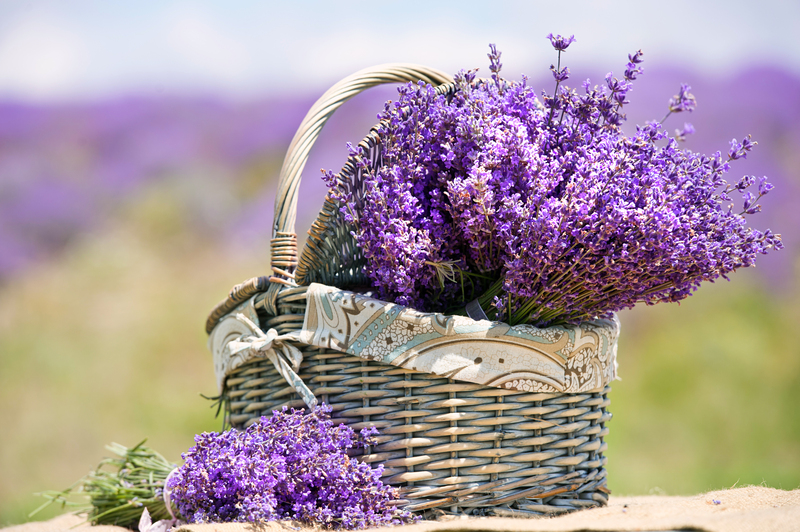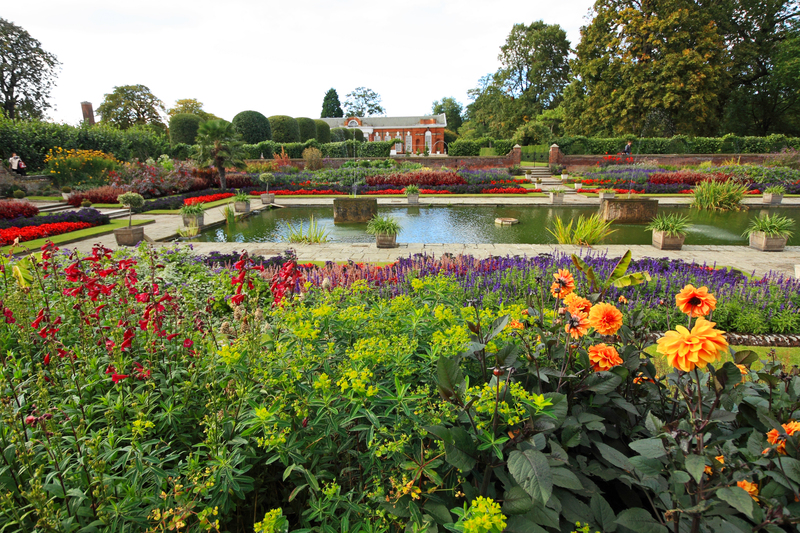Serenity Now: Zen Garden Concepts for Peaceful Vibes
Posted on 12/06/2025
Serenity Now: Zen Garden Concepts for Peaceful Vibes
Imagine stepping into a tranquil oasis, where every element is designed to calm your sense and center your mind. That's the essence of a Zen garden. In today's fast-paced world, cultivating a peaceful retreat at home has never been more important. Whether you have a large backyard or a small corner of a balcony, creating a Zen-inspired sanctuary can transform your daily living experience. This article will guide you through the comprehensive concepts of Zen garden design, offering fresh inspiration to infuse your space with serenity and peaceful vibes.
What Is a Zen Garden?
The term "Zen garden" refers to a traditional Japanese landscape garden, known as karesansui (dry landscape garden). Rooted in Buddhist philosophy, these gardens are designed for meditation and mindfulness. They combine elements like rocks, gravel, sand, moss, and minimal plant life to represent an idealized miniature landscape, invoking a sense of harmony and balance.
- Minimalism: Simple and uncluttered layouts encourage a clear mind.
- Symbolism: Elements like rocks and sand can symbolize mountains, islands, or flowing water.
- Balance: Every item is purposefully placed to evoke harmony and tranquility.
- Meditation: Spaces are designed for contemplation and inner peace.

The Core Elements of Zen Garden Design
1. Rocks and Stones: The Backbone of Zen Calm
In every peaceful Zen garden, rocks represent mountains, islands, or living beings. Their placement is intentional and meaningful. Strategically positioned stones create a narrative in the garden, drawing the eye and serving as a visual anchor. Placing three rocks in a triangle, a classic arrangement, brings stability and natural balance.
- Variety: Use stones of different sizes to add depth and interest.
- Texture: Smooth river rocks contrast beautifully with rougher boulders.
2. Gravel and Sand: The Art of Stillness
Raked gravel is one of the most recognizable Zen garden features. It signifies water or waves and represents impermanence and flow. By raking fresh patterns, you can create a meditative ritual, fostering both presence and creativity. The raked patterns--swirls around stones or straight lines--encourage a reflective mindset.
- Maintenance: Raking is part of the meditative process and keeps your garden looking pristine.
- Material: Choose pale-colored gravel or sand for the most calming effect.
3. Plants: The Touch of Life
Zen gardens are famous for their restraint in planting. But select flora can enhance the mood of your space with soft color, form, and scent. Choose evergreens for year-round life, moss for ground cover, and bamboo for a gently rustling backdrop.
- Moss: Softens sharp edges and introduces a lush carpet of green.
- Bamboo: Adds movement and gentle sound.
- Small shrubs: Azaleas or dwarf pines deliver color and form while keeping the scale intimate.
4. Water Features: Sounds of Serenity
While traditional dry landscape gardens mimic water with gravel, introducing an actual water element can heighten the sense of peace. A small pond, still water basin, or bamboo fountain imparts soothing sounds and reflective surfaces, enhancing the Zen garden's tranquil vibes.
- Stillness: A calm pond mirrors the sky, reinforcing a meditative atmosphere.
- Movement: A trickling bamboo fountain (shishi-odoshi) adds gentle, hypnotic rhythms.
5. Pathways and Bridges: Invitations to Mindfulness
Cobblestone paths or simple stepping stones encourage intentional movement through your garden. Passing over a small bridge symbolizes transition--moving from chaos toward serenity.
- Materials: Use natural stone, wood, or gravel for authenticity.
- Placement: Arrange stepping stones in staggered, natural patterns, guiding visitors mindfully.
Creative Zen Garden Concepts for Every Space
Small Zen Courtyards
You don't need a sprawling estate to encapsulate Zen garden concepts. Even a small patio or balcony can become your sanctuary. Focus on a minimalist sand tray, a few meaningful rocks, and a potted bamboo plant. Compact benches or floor cushions create a dedicated reflection spot.
- Tip: Use a tabletop Zen garden for apartments or offices--perfect for mid-day stress relief.
- Decor: Add a subtle lantern or wind chime for visual and auditory serenity.
Backyard Zen Retreats
Transform your backyard with large gravel beds, curved stone paths, and groupings of evergreen plants. Add a small koi pond or water basin to enhance the peaceful landscape. Consider bamboo screens for privacy and bamboo fences as traditional, visual boundaries.
- Meditation Deck: Place a wooden deck or platform for yoga and meditation rituals.
- Fire Feature: A simple fire bowl can add warmth and ambiance during evening reflections.
Indoor Zen Spaces
Channel Zen garden energy indoors by creating a minimalist reading nook or meditation zone. Layer pebbles, moss, and smooth stones on a shallow tray. Add a tabletop fountain for a subtle water element. Natural light and air circulation are essential for maintaining a fresh ambience.
Children's Zen Gardens
Introduce Zen garden concepts to kids with interactive sand and rock areas, easy-to-rake mini sand trays, or simple moss gardens. These spaces foster mindfulness, patience, and creativity from an early age.
- Colorful pebbles: Invite playful arrangements without overwhelming the sense of calm.
- Mini figurines: Add small Buddha statues or pagodas to spark curiosity.
Incorporating Authentic Zen Garden Accessories
Traditional Lanterns
Stone lanterns (toro) not only provide soft, ambient lighting but are steeped in symbolic meaning. Placing a lantern at a garden's entryway can signify the transition from the outer world to the inner sanctuary.
Bamboo Fences and Screens
Use bamboo fencing to delineate boundaries, guide movement, and offer privacy. This organic material blends perfectly with the naturalistic look of your peaceful Zen-inspired garden.
Seating for Reflection
Stone benches, wooden stools, or simple floor cushions encourage moments of stillness and deep breath. These seating options can become focal points for personal meditation or tea ceremonies.
Cultivating a Mindful Zen Garden Routine
Daily Raking Ritual
Raking sand or gravel isn't housekeeping--it's a mindful meditation practice. Each pattern, whether swirling or linear, reflects transience and invites the mind to let go of attachment.
Regular Pruning and Care
Maintaining clean lines, uncluttered plantings, and healthy moss or bamboo is an extension of Zen garden philosophy: order in the landscape fosters clarity of mind.
Meditation, Yoga, and Tea
A peaceful Zen garden provides the perfect backdrop for meditation, yoga, or mindful tea drinking. Embrace slow movement and conscious breathing, feeling your senses awaken with every element in your oasis.
Benefits of Creating a Zen Garden Sanctuary
- Stress Relief: Just being in a serene space reduces cortisol levels.
- Mental Clarity: The simplicity of design encourages clear and focused thoughts.
- Connection with Nature: Incorporating natural elements grounds you in the present moment.
- Personal Sanctuary: Find your own peaceful zone for recharge and creativity.
- Year-Round Enjoyment: Evergreen plantings and minimal maintenance keep your Zen garden beautiful in all seasons.
Design Tips for Peaceful Zen Vibes
- Start Small: A corner is all you need for your first Zen-inspired nook.
- Embrace Asymmetry: Avoid rigid patterns. Natural, balanced asymmetry brings harmony.
- Choose Natural Materials: Stone, gravel, wood, and bamboo create cohesion and authenticity.
- Let Space Breathe: Negative space, or ma, is just as important as what you add.
- Reflect Your Journey: Arrange elements to tell your personal story or evoke memories.
Common Zen Garden Mistakes (And How to Avoid Them)
- Overcrowding: Keep plantings and decor minimal for true serenity.
- Ignoring Maintenance: Rake gravel, clean pathways, and trim plants regularly.
- Mixing Styles: Stick to traditional Japanese elements for cohesion.
- Choosing Flashy Colors: Choose muted, earthy tones for a calming palette.
Top Plants for Peaceful Zen Gardens
- Moss: Mats of vibrant green for lush tranquility.
- Bamboo: Fast-growing, evergreen privacy and calming sound.
- Japanese Maple: Elegant, sculptural, and colorful in autumn.
- Pine and Juniper: Rugged evergreens pruned to interesting forms.
- Ferns: Feathery, shade-loving texture for contrast.

Easy DIY Zen Garden Projects
- Tabletop Zen Trays: Use a shallow dish, sand, pebbles, and a miniature rake for instant desktop calm.
- Stone Arrangements: Collect naturally weathered stones and create your own meaningful groupings.
- Mini Moss Gardens: Plant moss in small containers for simple, accessible greenery.
- Luminous Lantern Path: Line a walkway or garden bed with solar-powered stone lanterns for peaceful evening vibes.
Conclusion: Bring Serene Zen Garden Vibes Home Today
If you're yearning for a peaceful retreat or simply a moment of calm in your day, a Zen garden is a timeless antidote to modern stress. By embracing Zen garden concepts--mindful placement, minimalism, natural elements, and routine care--you can foster peace and clarity in any home or yard. Whether you design a sprawling backyard oasis or a tiny indoor sand tray, the essence lies in thoughtful attention and everyday appreciation. Bring serenity now into your life and transform your space with Zen-inspired peaceful vibes today.
Latest Posts
The Eco-Benefits of Climate-Conscious Gardening
Finding the Beginning of Your Garden Restoration
3 Simple and Effective Tips for Managing Garden Weeds
Curate the Perfect Garden Vibes with Thoughtful Seating
Embark on Your Gardening Adventure: 9 Tips for the Uninitiated



